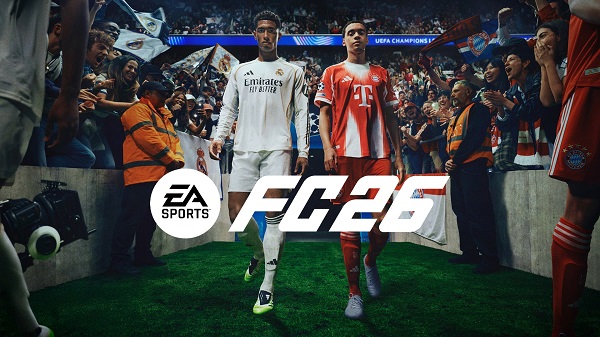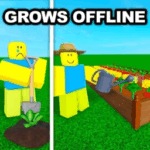Advertisement
Popular Now
I Am Cat is a virtual reality (VR) sandbox adventure that has captured the attention of gamers with its charming premise of embodying a mischievous feline in Granny’s house. Released across platforms like Steam, Meta Quest, and mobile devices, the game promises a playful experience filled with exploration, mini-games, and chaos-inducing antics. However, beneath its whimsical exterior lies a significant issue that has frustrated players: the game’s control mechanics, particularly the movement system. This article delves deeply into the specific problem of movement controls in I Am Cat, exploring its impact on gameplay, the developers’ responses, and potential solutions, while tracing the issue’s evolution through updates and community feedback.
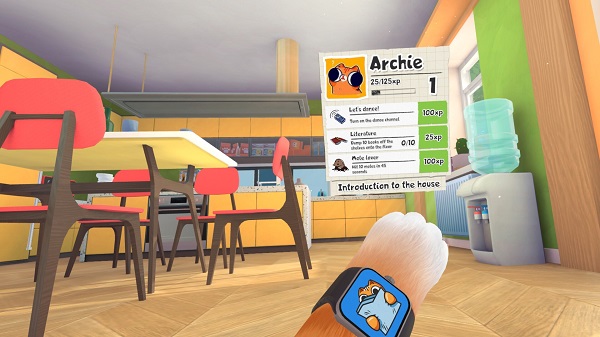
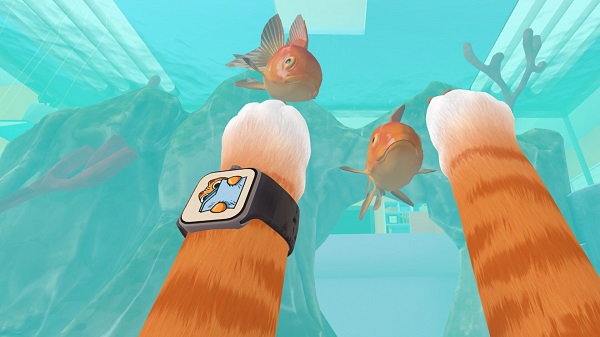

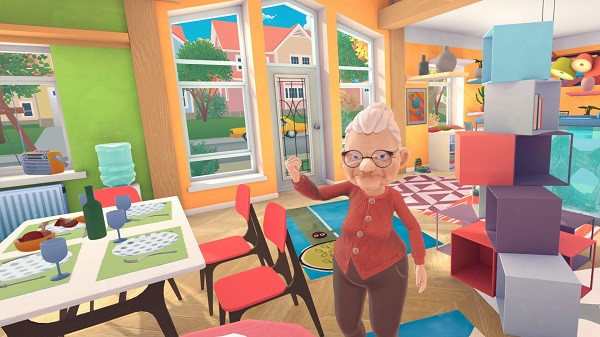
The Allure of Feline Freedom

A Cat’s World in VR
I Am Cat invites players to experience life from a cat’s perspective, offering a low-to-the-ground POV that emphasizes stealth, agility, and curiosity. The game’s sandbox environment, filled with interactive objects and mini-games like football and catch-the-mouse, aims to replicate the unpredictable nature of a cat’s behavior. However, the movement controls, which rely on hand gestures to simulate a cat’s gait, have been a point of contention since the game’s early access phase.Initial Impressions of Control
When I Am Cat first launched in early 2024, players were excited to dive into its VR world. The control scheme, designed to mimic a cat’s four-legged movement, requires players to use their VR controllers to alternate hand motions, simulating paw steps. While innovative, this system quickly revealed its flaws. Players reported struggling to move forward consistently, often experiencing a “sliding backward” effect or getting stuck on objects, which disrupted the immersive experience.Early Access Woes: The Sliding Backward Problem
The Rubber Band Effect
One of the most frequently cited issues in early reviews was the “rubber band” effect, where players felt pulled backward despite attempting to move forward. This was particularly evident in the game’s initial release on Steam in early 2024. Community forums buzzed with complaints about the cat avatar sliding backward or failing to register forward movement, making simple tasks like climbing shelves or navigating Granny’s house frustrating.Community Feedback and Frustration
Players on platforms like Reddit and Steam described the controls as “infuriating,” with some comparing the experience to fighting against an invisible force. For example, a Steam user noted, “I struggle to even just move forward, as I slide back all the time whenever I want to reach forward.” This issue was exacerbated in VR setups with physical constraints, such as low ceilings or dangling cables, which made the required arm motions cumbersome.Technical Roots of the Issue
The sliding backward problem appears to stem from the game’s physics-based movement system, which relies on precise hand tracking. If a player’s hand movements are not perfectly aligned or if the VR headset’s tracking system misinterprets gestures, the game registers incomplete or incorrect inputs, resulting in erratic movement. This was particularly problematic for users with high-refresh-rate headsets like the Valve Index, where tracking inconsistencies were more pronounced.The Developer’s Initial Response

Patch Notes and Promises
In response to early feedback, the developers released patch notes on April 22, 2025, addressing performance and VR compatibility issues. While the update focused on improving overall performance and fixing camera jitter for high-refresh-rate headsets, it did not directly tackle the sliding backward issue. Players continued to report difficulties, suggesting that the core movement mechanics needed more substantial revisions.Community Suggestions Ignored?
Some players felt that the developers were slow to acknowledge the severity of the control issues. A Reddit thread from June 2024 highlighted a sentiment that the developers prioritized adding new content, such as locations and skins, over fixing fundamental gameplay mechanics. This led to accusations of neglecting core issues in favor of monetization, particularly with the controversial “All Locations Bundle” DLC.The Learning Curve Debate
Is It Player Error or Design Flaw?
By mid-2024, a divide emerged in the community. Some players argued that the movement controls required a steep learning curve, suggesting that mastery came with practice. A Reddit user advised, “Hold your hands at nipple height and rotate them like unwinding a haspel of rope… it becomes automatism after a while.” Others, however, insisted that the controls were inherently flawed, pointing out that even experienced VR players struggled.Comparing to Other VR Titles
Comparisons to games like Gorilla Tag, which uses arm-based locomotion effectively, highlighted I Am Cat’s shortcomings. While Gorilla Tag allows fluid movement through intuitive arm swings, I Am Cat’s requirement for precise, alternating hand motions felt unnatural to many. This discrepancy raised questions about whether the developers had adequately tested the controls across diverse VR setups.Updates and Incremental Fixes
The December 2024 Update
By December 2024, the developers announced a major update, introducing new locations, characters, and mechanics. While the update included bug fixes, such as resolving hand disappearance during interactions, it only indirectly addressed movement issues by improving fall animations and character interactions in certain locations. Players noted slight improvements but still reported persistent sliding issues.Community Workarounds
Frustrated by the lack of a definitive fix, players shared workarounds on forums. One popular suggestion was to adjust hand positioning to avoid triggering the backward slide, such as keeping hands at chest level and using slower, deliberate motions. However, these workarounds were not universally effective, and many players felt that relying on community fixes was inadequate for a paid game.The Role of VR Hardware Variability

Headset Compatibility Challenges
The control issues were not uniform across all VR platforms. Users with Valve Index controllers reported specific problems, such as needing a “death grip” to hold objects, which compounded movement difficulties. In contrast, Meta Quest users experienced fewer grip-related issues but still struggled with the sliding effect. This variability suggests that the game’s movement system was not optimized for the diverse tracking capabilities of VR headsets.Environmental Constraints
Physical play space limitations also exacerbated control issues. Players with low ceilings or tangled cables found it difficult to perform the arm motions required for smooth movement. One Steam user lamented, “I have a low ceiling with cables dangling from the top (VR Tracker dongles) which makes jumping high really difficult.” This highlighted a design oversight in not accommodating varied VR setups.Monetization and Its Impact on Perception
The “All Locations Bundle” Controversy
The control issues were compounded by negative sentiment around the game’s monetization. In January 2025, a Reddit thread criticized the “All Locations Bundle” DLC, which misled players into thinking it unlocked new content when it only provided early access to existing levels. This controversy fueled perceptions that the developers prioritized revenue over addressing core issues like controls.Ads in the Mobile Version
On mobile platforms, players faced additional frustrations with frequent ads interrupting gameplay. Reviews on Google Play noted that tasks like opening a fridge or playing the piano required watching ads, which disrupted the flow and made control issues feel even more aggravating. This monetization model likely diverted developer focus from refining VR controls.Community-Driven Solutions and Mods
Player Innovation
By early 2025, dedicated players began creating unofficial guides and mods to improve the control experience. A Steam community post outlined a detailed movement technique, likening it to “treating it like a bicycle, but with your hands.” While these efforts helped some players, they underscored the developers’ failure to provide clear in-game tutorials or robust control options.Calls for Official Mod Support
Some community members suggested that the developers open the game to modding, allowing players to tweak the movement system themselves. Given the game’s physics-based nature, modders could potentially implement smoother locomotion or alternative control schemes, such as teleportation or joystick-based movement, to accommodate different play styles.The Developer’s Latest Efforts
Update 1.1.0.2: A Step Forward?
The release of Update 1.1.0.2 in 2025 brought targeted fixes, including resolving bugs in specific locations like the garage and improving animations. While these changes improved stability, the core movement issues persisted for many players. The developers acknowledged ongoing feedback, promising further refinements, but the lack of a comprehensive overhaul left some skeptical.Communication Gaps
Critics noted that the developers’ communication about control issues was inconsistent. While patch notes addressed specific bugs, there was little transparency about plans to revamp the movement system. This lack of clarity fueled frustration, as players felt their concerns were not being fully addressed.Comparing to Other Animal Simulators
Lessons from Goat Simulator
I Am Cat draws comparisons to Goat Simulator, another chaotic sandbox game with intentionally quirky controls. However, Goat Simulator’s controls are designed to be humorously chaotic, whereas I Am Cat aims for immersion, making its control flaws less forgivable. Players expected a more polished experience given the game’s VR ambitions and paid model.Stray: A Benchmark for Cat Games
The 2022 game Stray set a high standard for cat simulators with its fluid, intuitive controls. While Stray is not a VR title, its seamless movement mechanics highlighted what I Am Cat could achieve with better optimization. The contrast underscored the need for I Am Cat to refine its controls to match the expectations set by other animal-themed games.The Psychological Impact on Players













